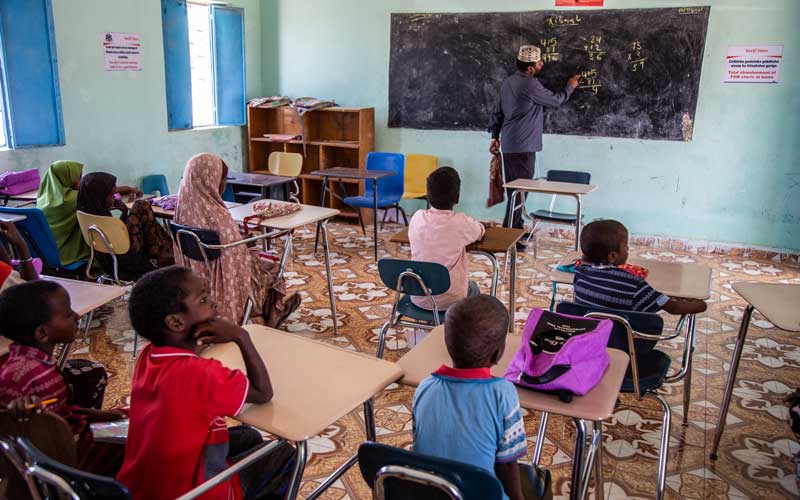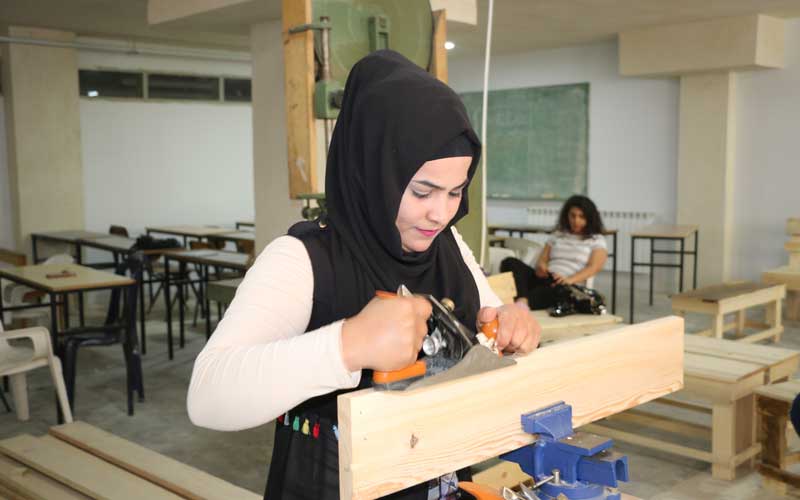1. What is education?
Education is the process where an individual acquires or imparts basic knowledge to another. It is also where a person:- develops skills essential to daily living,
- learns social norms,
- develops judgment and reasoning, and
- learns how to discern right from wrong.
There are various types of education but typically, traditional schooling dictates the way one’s education success is measured. People who attended school and attained a higher level of education are considered more employable and likely to earn more.
In developing, low-income countries, for example, there is a projected 10 per cent increase in a person’s future income for every additional year of education.
Education helps eradicate poverty and hunger, giving people the chance at better lives. This is one of the biggest reasons why parents strive to make their kids attend school as long as possible. It is also why nations work toward promoting easier access to education for both children and adults.

Household food insecurity is a common problem in Somalia and is identified as a reason for student absenteeism. Many families are pastoralists, moving around where the food source is, especially during periods of drought. It becomes difficult for their children to attend school regularly. Photo: Gwayi Patrick
There are plenty of reasons why education is important. Generally speaking, they all tie closely to a person’s goals in life and to their future well-being. Below are some of the other most common reasons education is so important:
- Education helps a person hone their communication skills by learning how to read, write, speak and listen.
- Education develops critical thinking. This is vital in teaching a person how to use logic when making decisions and interacting with people (e.g., boosting creativity, enhancing time management).
- Education helps an individual meet basic job qualifications and makes them more likely to secure better jobs.
- Education promotes gender equality and helps empower girls and women. A World Bank report found that an extra year of schooling for girls reduces teen pregnancy rates by six per cent and gave women more control over how many children they have.
- ducation reduces child mortality. According to UNESCO, a child born to a mother who can read is 50 per cent more likely to survive past the age of five.
- Education in Canada is generally overseen and funded by governments (provincial, territorial and federal).
- Kindergarten in Canada is mandatory in most provinces and optional in a few. Starting in Grade 1, education is mandatory until a child is at least 16. The only exceptions are when families adhere to certain requirements for home schooling.
- Canada offers a Kindergarten to Grade 12 educational system, along with some other countries, such as the United States, Australia, Germany, Japan, Singapore and the Philippines.
- Canada once had a highly controversial residential school system. More than 150,000 First Nations, Métis and Inuit children were forced to attend church-run, government-funded schools between the 1870s and 1997.
- In 2016, some 750 million adults in the world still lacked basic reading and writing skills. Two-thirds of them were women.

A student from a primary school in Rwanda tries using a tablet computer in class. Many World Vision programs introduce technology into classrooms and youth training centres. Photo: Charity Beza Uwase
Education is typically divided into three categories: formal education, informal education, and non-formal education.
Formal education
Formal education is the type that is typically conducted in a classroom setting in an academic institution. This is where students are taught basic skills such as reading and writing, as well as more advanced academic lessons.
Also known as ‘formal learning’, it usually begins in elementary school and culminates in post-secondary education. It is provided by qualified teachers or professors and follows a curriculum.
Informal education
Informal education, on the other hand, is the type that is done outside the premises of an academic institution. Often, this is when a person learns skills or acquires knowledge from home, when visiting libraries, or browsing educational websites through a device. Learning from the elders in one’s community can also be an important form of informal education.
Such education is often not planned or deliberate, nor does it follow a regimented timetable or a specific curriculum. It is spontaneous and may also be described as a natural form of education.
Non-formal education
Non-formal education has qualities similar to both formal and informal education. It follows a timetable and is systemically implemented but not necessarily conducted within a school system. It is flexible in terms of time and curriculum and normally does not have an age limit.
The most common examples of non-formal education include community-based courses, vocational training or short programs that are not facilitated by professional instructors.

A female student in Lebanon learns carpentry, a skill often associated with men. Education of all kinds empower girls and women in their communities. Photo: Maria Bou Chaaya
If all students in low-income countries acquired basic reading skills before leaving school, entire societies could change dramatically. According to UNESCO, 171 million people could be lifted out of poverty. But education isn’t just about living above the poverty line. It’s about quality of life, choices at work, and many other benefits, as listed below.
Developing problem-solving skills
The schooling system teaches a person how to make their own decisions by developing critical and logical thinking skills. This prepares children for adulthood when both big and small decisions become a constant part of their daily lives.
For example: coming up with solutions to challenges in the community or planning how to provide for a family.
Self-reliance and empowerment
Knowing how to read, write and do arithmetic is empowering. When a person can read, they can access endless learning and information. When they can calculate expenses and make a budget, they can start a small business. Paired with the ability to form opinions, literacy makes a person become more self-reliant, and gives them confidence.
Promoting equality among individuals
In an ideal world, there is no room for discrimination due to race, gender, religion, social class, or level of literacy. This is where the value of education comes to play. Through education, one can develop strong, well-considered opinions – and learn to respect the views of others. Many experts agree that education is a significant contributor to peace in societies.
Stability and financial security
A person’s income is often linked to his or her educational attainment. Around the world, there are more employment opportunities for those who complete high school, earn a degree, diploma or certificate, or go on to post-graduate studies. These can also mean higher salaries.
Economic growth (as a nation)
An educated population is important in building a nation’s economy. According to studies, countries with the highest literacy rates are more likely to make progress in human and economic development. National economic growth begins with individual economic growth, which is often linked back to education.
In Canada, 70 per cent of jobs have a college-level reading skill requirement. A separate report also found that individuals with lower literacy skills are more likely to be unemployed.
Giving back to the community
Once children are educated, they have more ways to make a difference in their communities. Many of the children we serve at World Vision have dreams of making a difference as teachers, doctors, or as part of the government.

Elementary students from Papua New Guinea now have toy kits for recreation time at school. Play helps children solve problems, develop creativity and work as a team. Photo: Nelson Kairi Kurukuru
One of World Vision’s objectives is to make education accessible for girls and boys around the world. We see it as an effective tool to promote sustainable growth for children, their families and the communities that we support.
In 2020, donors sponsored 377,888 children across 44 countries through World Vision Canada alone. Many of these children are now benefitting from formal education. At least 12,270 children attend after-school literacy activities, while 51,585 adults were educated on child protection.
World Vision has several programs which make education of children and youth a priority. These include Child Sponsorship, the Raw Hope initiative and the World Vision Gift Catalogue. Through these projects, anyone interested in helping fund the education of vulnerable children can participate.

6. How can I contribute toward making education accessible?
Children in Canada have access to free education all the way through high school – but it’s not true everywhere. Below are some of the ways you can help make education accessible for girls and boys around the world.
Child Sponsorship
World Vision is known for our Child Sponsorship program. It is an initiative where we pool together funds from donors, partners and the Canadian government to provide access to necessities such as nutritious food, clean water, health care and education among others. The program benefits children across 44 countries, emphasizing access to education.
Raw Hope
Raw Hope is another program where we strive to make learning possible, even in the world’s most dangerous places. We do more than provide access to life-saving essentials. Raw Hope also includes the creation of safe spaces where girls and boys can play and continue their learning, even when life is in chaos.
Gift Catalogue
World Vision’s online Gift Catalogue invites donors to choose from many kinds of life-changing gifts–including several focusing on education. You can help by: donating textbooks for children, distributing school essentials, donating tech for a community, and helping send girls to school.
Volunteer
While monetary donations are a great way to help, it is not the only option. You can also try volunteering your time by joining groups in your city or neighbourhood. Look for associations accepting volunteer teachers and share your knowledge with children of all ages. Volunteer Canada has a directory of volunteer centres all over the country. You can also get in touch with World Vision Canada to learn about volunteering with us.
s.

7. Quick facts about education in Canada and the world
Different countries and regions have different approaches to education, for children and adults. A nation’s wealth – and stability – often affect what they are able to offer. Here are some facts about education in Canada and the rest of the world: